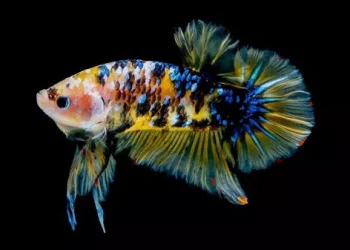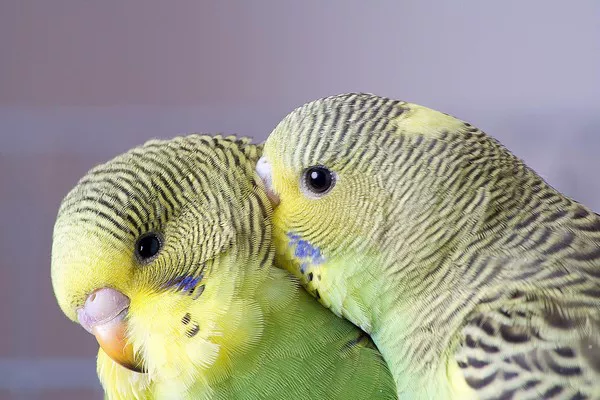Conures are some of the most popular pet birds around the world due to their vibrant personalities, colorful feathers, and intelligence. These beautiful and entertaining creatures are a part of the parrot family and are known for their playful and affectionate nature. However, one common question potential conure owners ask is whether a male or female conure makes a better pet.
In this article, we will dive deep into the differences between male and female conures. We will explore their temperament, behavior, health considerations, and care needs to help you decide which might be the best fit for your lifestyle. So, let’s take a closer look at the two genders of conures and see how they compare.
Understanding Conures
Before we dive into the differences between male and female conures, it’s important to first understand what a conure is and what characteristics are common to all conures.
Conures belong to the parrot family, with over 40 species in total. They are small to medium-sized birds, typically ranging from 10 to 20 inches in length, depending on the species. Conures are known for their bright colors, including greens, blues, reds, and yellows. These birds are often very social, affectionate, and intelligent, making them a popular choice for pet owners.
There are various species of conures, with some of the most well-known being the Green Cheek Conure, Sun Conure, and the Nanday Conure. Despite their differences in appearance and specific behaviors, conures, in general, have similar social needs, intelligence levels, and activity requirements.
Now that we have a basic understanding of what conures are, let’s examine the differences between male and female conures.
Physical Differences Between Male and Female Conures
One of the most noticeable distinctions between male and female conures lies in their physical traits. However, it is important to note that these differences can be subtle and may not always be obvious without a trained eye.
Size
In general, male conures tend to be slightly larger than females. This difference is most noticeable in some species of conures, such as the Green Cheek Conure. While the size difference may not be significant, it is still something to note if you’re trying to distinguish between the genders.
Coloration
The color patterns of male and female conures are typically similar, with the males often having more vibrant colors. This is particularly true in species like the Sun Conure, where the male conures have more intense and vivid colorings, especially around the head and chest. In contrast, female Sun Conures tend to have slightly duller colors, although this can vary depending on the individual bird.
For some species of conures, however, there might not be any noticeable color differences between males and females. This can make it difficult to tell them apart visually.
Feather Shape
Male conures may also exhibit slightly different feather patterns, particularly around the tail or wings, compared to females. This difference is often too subtle for the average pet owner to notice without close examination or professional help.
Beak Size and Shape
In some conure species, males may have slightly thicker or more pronounced beaks, but this isn’t always a reliable indicator of gender. The difference in beak size is often quite subtle and requires careful observation. In general, you may not notice a significant difference in beak shape unless you are handling the birds side by side.
The Bottom Line on Physical Differences
While there are some physical differences between male and female conures, they can be hard to distinguish, especially for non-experts. If you want to know the sex of your conure and it’s not obvious from its appearance, the best way to find out is through a DNA test or a professional vet examination.
Behavioral Differences Between Male and Female Conures
When it comes to personality and behavior, male and female conures can exhibit some distinct traits. However, it’s important to note that individual personality plays a huge role in shaping behavior, and not all males or females will fit the general patterns. Still, understanding these behavioral tendencies can help guide your decision when choosing a conure.
Male Conures
Male conures are generally known for being more affectionate and outgoing. They tend to bond closely with their human caregivers and can be very social, often seeking out attention. Male conures are typically very playful and enjoy being involved in family activities, interacting with people, and playing with toys.
One of the defining characteristics of male conures is their higher tendency to “talk” or mimic sounds. They tend to be more vocal, and many male conures are known for their ability to learn words, phrases, or even short songs. This makes them a good option for people looking for a bird that will interact verbally.
In addition, male conures are often more “showy” than females, especially during mating season. They may perform colorful displays, showing off their feathers and moving their bodies in a rhythmic pattern to attract attention. This can be a lot of fun for owners to watch and may even contribute to the bird’s entertainment value.
On the downside, male conures can also display territorial behaviors. During breeding season, they may become more aggressive or protective of their cages and toys. This is often a natural instinct, but it can lead to some challenges if not managed correctly. Male conures might also engage in more screaming or squawking when they don’t receive the attention they desire.
Female Conures
Female conures, in contrast, tend to be a bit more independent and less overtly affectionate compared to their male counterparts. While they can still be friendly, females are sometimes less likely to initiate physical contact. They are often described as being more reserved and less needy when it comes to constant interaction.
However, this does not mean that female conures are unfriendly or standoffish. They are simply more likely to enjoy quiet, alone time or to engage in play and interaction on their terms. Female conures can be just as loyal and loving as males, but they may not seek out attention in the same way.
When it comes to speaking or mimicking sounds, female conures are typically less vocal than males. While they may still learn a few words or sounds, they are generally not as chatty or likely to develop a “vocabulary” like their male counterparts.
During breeding season, female conures can also become more territorial. They may exhibit behaviors such as nesting or even guarding their cages. It’s important to be aware of these changes, as they can sometimes make a female conure more difficult to manage during these periods.
Overall Behavioral Summary
In general, male conures tend to be more social, affectionate, and vocal, while female conures may lean toward being more independent and reserved. However, individual personality plays a significant role in how each bird behaves, and there are always exceptions to these general trends.
If you’re looking for a highly interactive and talkative pet, a male conure might be a better fit. However, if you prefer a slightly more independent bird with less of a need for constant attention, a female conure might be the right choice.
Health Considerations
Both male and female conures require similar levels of care in terms of diet, exercise, and veterinary attention. However, there are some health considerations that differ between the genders.
Female Conures and Egg-Laying
One of the most significant health considerations for female conures is the potential for egg-laying. Female conures may lay eggs even if they do not have a mate, particularly if they are kept in an environment where they feel secure and comfortable. Egg-laying can sometimes lead to complications, such as egg binding, where an egg gets stuck in the reproductive tract. This condition is serious and can be life-threatening if not addressed immediately by a vet.
Female conures may also develop hormonal imbalances or reproductive-related health issues, such as cysts or tumors in the reproductive organs. Regular veterinary check-ups and monitoring for signs of illness are important for female conures to ensure their health and well-being.
Male Conures and Behavior-Related Health
Male conures, on the other hand, tend to exhibit more territorial or aggressive behavior during mating season. This can lead to stress, and in some cases, unwanted injuries from biting or squawking. While these behaviors are often manageable with training and attention, they may cause stress-related health problems if they are not addressed.
In addition, male conures may experience issues related to feather-plucking or excessive vocalization if they do not receive adequate mental stimulation or attention. It’s essential to provide them with plenty of toys and activities to keep them engaged.
Which Is Better: Male or Female Conure?
The answer to the question of whether a male or female conure is better largely depends on what you’re looking for in a pet. If you want a bird that is highly interactive, social, and vocal, then a male conure might be your best bet. Male conures tend to be more affectionate and engaging, and they are often easier to train to talk or mimic sounds.
On the other hand, if you prefer a bird that is a bit more independent and less demanding of constant attention, a female conure might be more suitable for your lifestyle. Female conures tend to be more reserved and can enjoy alone time, which can be perfect for owners who appreciate a more laid-back pet.
Regardless of whether you choose a male or female conure, both genders can make wonderful pets for the right owner. Conures are intelligent, loving, and highly trainable, and their personalities shine through regardless of their gender. With the right care, attention, and environment, both male and female conures can live long, happy lives and form strong bonds with their human families.
Conclusion
When choosing a conure as a pet, there are some differences between male and female birds, but these differences often come down to personality and behavioral tendencies. Whether you prefer a more social, vocal companion or a more independent, calm bird, both male and female conures can make excellent pets. Understanding these gender-based tendencies will help you make an informed decision that aligns with your expectations and lifestyle.
Ultimately, the best conure is the one that fits into your life and becomes a cherished part of your family, regardless of gender.
Related Topics:






















